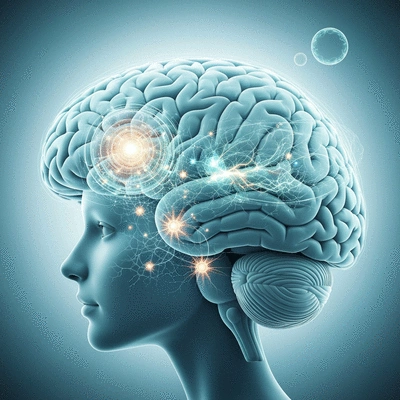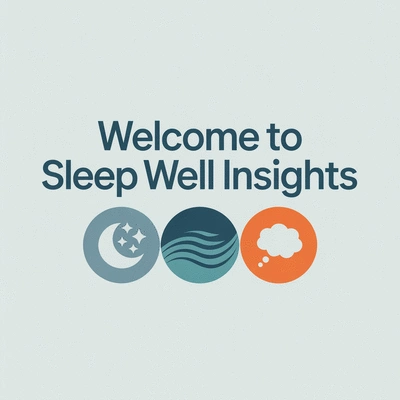Ever felt like your mind is racing while you're lying awake at night? You're not alone. The intricate dance between insomnia, anxiety, and depression can leave many in a perpetual cycle of sleeplessness. This article sheds light on these connections, offering insights that can help you reclaim your restful nights.
What You Will Learn
- Insomnia, anxiety, and depression are interrelated, with each condition influencing the others in a bidirectional manner.
- Common symptoms like restlessness and racing thoughts can exacerbate sleep issues, making it crucial to recognize these patterns.
- Elevated cortisol levels can hinder your ability to relax and fall asleep, highlighting the impact of stress on sleep quality.
- Understanding the role of serotonin in mood and sleep can pave the way for effective treatment strategies.
- Cognitive Behavioral Therapy for Insomnia (CBT-I) is an effective approach targeting the behaviors and thoughts disrupting sleep.
- Medication may be necessary in some cases, but should be used judiciously and in conjunction with other therapies for optimal results.
The Interconnected Cycle of Insomnia, Anxiety, and Depression
This visual illustrates the bidirectional relationships and shared characteristics among insomnia, anxiety, and depression, highlighting how each condition influences the others.
Bidirectional Relationship
Insomnia can heighten anxiety, and anxiety can worsen sleep. A continuous cycle where each feeds the other.
- Common Symptoms
- Stress Hormones (Cortisol)
- Cognitive Distortions
Shared Mechanisms & Symptoms
Neurotransmitter imbalances (serotonin) affect both mood and sleep cycles.
- Irritability
- Difficulty Concentrating
- Fatigue
Sleep Disturbance & Mental Health
Poor sleep quality amplifies mental health issues and impairs cognitive function.
- Increased Severity
- Impaired Cognition
- Physical Health Problems
Insomnia: Symptom & Predictor
Insomnia can indicate looming anxiety/depression and also lead to their development.
*Keeping a sleep journal can help identify patterns.Understanding the Interconnections Among Depression, Anxiety, and Insomnia
Have you ever noticed how your mood can spiral when you’re struggling to sleep? At Sleep Well Insights, I often see how insomnia can intertwine with both depression and anxiety. It’s like a tangled web where each condition pulls at the others, making it challenging to find a way out. Understanding these interconnections is crucial for anyone dealing with sleeplessness and mental health issues.
These three conditions share a bidirectional relationship, where one can influence the other. For example, insomnia can heighten feelings of anxiety, while anxiety can, in turn, make it harder to fall asleep. Recognizing this dynamic is the first step toward managing your mental health and achieving better sleep.

The Bidirectional Relationship: How These Conditions Influence Each Other
Let’s dive deeper into how these conditions interact. The connection often stems from shared symptoms, making it difficult to distinguish where one condition ends and another begins. Here are some key points to consider:
- Common Symptoms: Anxiety and depression can manifest as restlessness or racing thoughts, both of which can exacerbate insomnia.
- Stress Hormones: Elevated levels of cortisol, the stress hormone, can interfere with your body’s ability to wind down, leading to difficulties in falling asleep.
- Cognitive Distortions: Negative thought patterns often associated with depression can keep you awake at night, creating a vicious cycle.
By exploring these interconnected symptoms, you can begin to address your sleep issues from multiple angles, paving the way for improved mental health.
Exploring Shared Mechanisms and Symptoms
It can be surprising how intertwined our mental health and sleep can be. Shared mechanisms like neurotransmitter imbalances, particularly involving serotonin, play a significant role in both mood regulation and sleep cycles. Low serotonin levels can lead to mood disorders, which in turn can disrupt sleep. When we understand these shared pathways, we can create a more effective plan to tackle our insomnia and its related challenges.
Additionally, recognizing symptoms such as irritability, difficulty concentrating, and fatigue is essential. These signs can signal that your mental health is suffering, directly impacting your sleep quality. Addressing them holistically is key to breaking the cycle and reclaiming restful nights.
The Role of Sleep Disturbance in Mental Health Disorders
Understanding sleep disturbances is vital, especially when considering their significant impact on mental health. Poor sleep quality does not just make you feel tired; it can also exacerbate underlying mental health conditions. Here’s how:
- Increased Severity: Lack of sleep can amplify feelings of depression and anxiety, making it harder to cope with daily stressors.
- Impaired Cognitive Function: Sleep deprivation can lead to poor decision-making, increasing the risk of worsening mental health.
- Physical Health Problems: Chronic insomnia can lead to conditions like heart disease and obesity, which further complicate mental health.
By recognizing these effects, we can better understand why tackling sleep issues is a crucial part of managing anxiety and depression.
Sleep Quality and Its Impact on Depression and Anxiety
It’s no secret that sleep quality is foundational to mental health. When we don’t get enough restful sleep, our emotional resilience wanes. This can manifest in various ways, such as irritability or overwhelming sadness. Prioritizing sleep can lead to a more balanced mood and improved overall well-being. As I often tell my clients, making simple adjustments to your sleep environment can lead to significant improvements.
For instance, consider implementing a bedtime routine that includes calming activities like reading or meditation. This can set the stage for better sleep and help ease the transition into slumber, making a world of difference in how you feel during the day.
Identifying Insomnia as Both a Symptom and Predictor
Interestingly, insomnia serves as both a symptom and a predictor of mental health issues. If you find yourself tossing and turning frequently, it may indicate that anxiety or depression is looming. Conversely, chronic insomnia can lead to the development of these conditions, creating a perilous cycle.
Keeping a sleep journal can be a powerful tool to identify your unique patterns. Documenting your sleep habits, mood changes, and daily activities can provide insights into the root causes of your insomnia and help you take the necessary steps toward recovery.
The Influence of Serotonin and Neurotransmitters on Mood and Sleep
The role of serotonin in regulating mood and sleep cannot be overstated. This neurotransmitter acts as a chemical messenger that helps transmit signals in the brain, influencing both sleep cycles and emotional states. Imbalances in serotonin levels can contribute to anxiety and depression, leading to sleep disturbances.
For many, understanding this connection helps in addressing their insomnia through targeted strategies, such as lifestyle changes, dietary adjustments, or even professional therapy. Remember, you don’t have to navigate this journey alone—support is available!
Pro Tip
To enhance your sleep quality and combat insomnia, consider incorporating relaxation techniques such as deep breathing or gentle yoga into your evening routine. These practices can help calm your mind, reduce anxiety, and pave the way for a restful night’s sleep.

Comprehensive Treatment Approaches for Co-occurring Conditions
When it comes to managing the interconnected challenges of depression, anxiety, and insomnia, a multifaceted approach often yields the best results. Understanding that these conditions can exacerbate each other is crucial in shaping a comprehensive treatment plan. At Sleep Well Insights, we believe in empowering individuals with knowledge about effective strategies to overcome these issues.
Addressing each condition uniquely, while also considering their combined impact, can create a more robust healing environment. Whether through therapy, medication, or lifestyle changes, exploring all available options is key to finding a solution that works for you.
Cognitive Behavioral Therapy for Insomnia (CBT-I) and Its Efficacy
One of the most effective treatments for insomnia, especially when related to anxiety and depression, is Cognitive Behavioral Therapy for Insomnia (CBT-I). Unlike traditional CBT, which focuses on changing negative thought patterns, CBT-I specifically targets sleep behaviors and thoughts that disrupt restful sleep.
- Focuses on changing behavior patterns that interfere with sleep
- Involves setting a consistent sleep schedule
- Utilizes techniques to address negative thoughts about sleep
- Incorporates relaxation strategies to decrease insomnia symptoms
Research shows that CBT-I can significantly improve sleep quality, which in turn can reduce symptoms of depression and anxiety. As a sleep health advocate, I encourage exploring this option as a primary treatment method.
How CBT-I Differs from Traditional CBT
While both therapies aim to improve mental health, it's important to recognize the distinct goals of CBT-I compared to traditional CBT. CBT-I zeroes in on sleep-related issues, making it more focused on the mechanics of sleep rather than general mental health concerns.
- CBT-I emphasizes sleep education and hygiene practices
- Traditional CBT often addresses broader emotional and behavioral issues
- CBT-I typically has a shorter duration than traditional CBT
By tailoring the approach specifically to sleep, CBT-I can provide targeted relief for those grappling with insomnia intertwined with mental health challenges.
Pharmacological Options: When Medication is Necessary
In some instances, psychological interventions alone may not provide sufficient relief, and medication can play a pivotal role in treatment. Understanding when to incorporate pharmacological options is essential for achieving better sleep and overall mental health.
Medications can help regulate mood and improve sleep quality, allowing individuals to engage more effectively in therapy and other supportive measures.
Combining Antidepressants with CBT for Improved Outcomes
For individuals with co-occurring insomnia, anxiety, and depression, a combination of antidepressants and CBT can enhance treatment outcomes. This integrated approach allows for immediate relief through medication while addressing the underlying issues through therapy.
- Antidepressants can stabilize mood and anxiety levels
- CBT provides tools to tackle insomnia directly
- This combination can lead to a more comprehensive recovery
It's crucial to work with a healthcare provider to determine the best combination that addresses your individual needs and symptoms.
Understanding Sleep Medications and Their Role in Treatment
Sleep medications, often prescribed for short-term use, can be helpful in breaking the cycle of insomnia. However, it's vital to understand their role and potential risks. While they can provide immediate relief, they shouldn't be the sole solution.
- Common sleep medications include benzodiazepines and melatonin receptor agonists
- They can aid in establishing a sleep routine
- Long-term use can lead to dependency or tolerance
Consulting with a healthcare professional to explore the benefits and drawbacks of sleep medications is essential in ensuring a balanced approach to treatment.
Frequently Asked Questions (FAQs)
- 1. How are insomnia, anxiety, and depression interconnected?
- These conditions share a bidirectional relationship, meaning each can influence and exacerbate the others. Insomnia can heighten anxiety, and anxiety can worsen sleep, creating a continuous cycle. Similarly, depression can disrupt sleep patterns, and lack of sleep can intensify depressive symptoms.
- 2. What are the common symptoms that link these conditions?
- Common symptoms include restlessness, racing thoughts, irritability, difficulty concentrating, and fatigue. These symptoms can make it hard to fall asleep or stay asleep, thereby exacerbating both anxiety and depression.
- 3. How do stress hormones affect sleep?
- Elevated levels of cortisol, known as the stress hormone, can interfere with your body's natural ability to relax and wind down. This makes it difficult to fall asleep and can disrupt the quality of your sleep, contributing to insomnia.
- 4. What is the role of serotonin in mood and sleep?
- Serotonin is a neurotransmitter that plays a crucial role in regulating mood and sleep cycles. Imbalances in serotonin levels can contribute to mood disorders like anxiety and depression, which in turn can lead to significant sleep disturbances.
- 5. What is Cognitive Behavioral Therapy for Insomnia (CBT-I) and how does it help?
- CBT-I is a specialized form of therapy that targets specific sleep behaviors and thoughts that disrupt restful sleep. It involves setting consistent sleep schedules, addressing negative thoughts about sleep, and incorporating relaxation techniques. Research indicates CBT-I can significantly improve sleep quality and reduce symptoms of depression and anxiety.
- 6. When might medication be necessary for these co-occurring conditions?
- Medication may be considered when psychological interventions alone are not sufficient. Pharmacological options can help regulate mood and improve sleep quality, making it easier for individuals to engage in therapy and other supportive measures. It's often used in combination with CBT for improved outcomes.
Recap of Key Points
Here is a quick recap of the important points discussed in the article:
- Bidirectional Relationships: Depression, anxiety, and insomnia are interconnected, influencing one another.
- Shared Symptoms: Common symptoms include restlessness, racing thoughts, and irritability that exacerbate insomnia.
- Cognitive Behavioral Therapy for Insomnia (CBT-I): This targeted therapy effectively addresses sleep disturbances linked with anxiety and depression.
- Sleep Quality Matters: Prioritizing good sleep can enhance emotional resilience and overall mental health.
- Holistic Approach: Managing insomnia requires a multifaceted strategy, including therapy, medication, and lifestyle changes.









